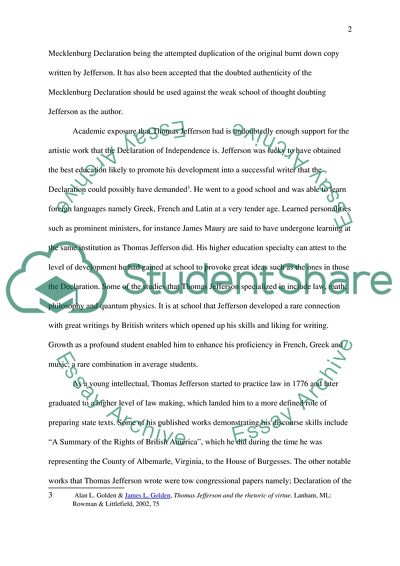Cite this document
(The Declaration of Independence: Thomas Jefferson Research Paper, n.d.)
The Declaration of Independence: Thomas Jefferson Research Paper. Retrieved from https://studentshare.org/history/1744107-the-declaration-of-independence-thomas-jefferson
The Declaration of Independence: Thomas Jefferson Research Paper. Retrieved from https://studentshare.org/history/1744107-the-declaration-of-independence-thomas-jefferson
(The Declaration of Independence: Thomas Jefferson Research Paper)
The Declaration of Independence: Thomas Jefferson Research Paper. https://studentshare.org/history/1744107-the-declaration-of-independence-thomas-jefferson.
The Declaration of Independence: Thomas Jefferson Research Paper. https://studentshare.org/history/1744107-the-declaration-of-independence-thomas-jefferson.
“The Declaration of Independence: Thomas Jefferson Research Paper”, n.d. https://studentshare.org/history/1744107-the-declaration-of-independence-thomas-jefferson.


